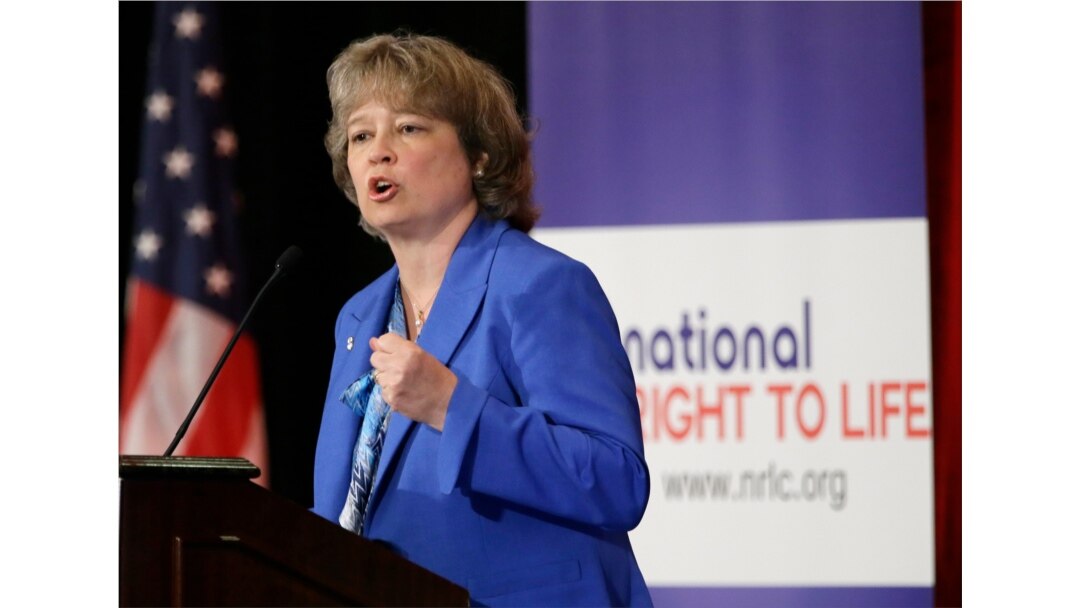This story was updated on July 19 at 9:45am
WASHINGTON - Medical providers say some pregnant women in developing countries have lost access to prenatal health care because of the Trump administration’s expanded “global gag rule” that cut aid to international organizations involved in abortion-related activities.
A recent study in the Lancet Global Health journal also reports that abortions actually increased in Africa when these aid restrictions were enacted in the past.
U.S. President Donald Trump in 2017 reinstated the partisan “global gag rule,” which blocks around $8.8 billion of U.S. international health assistance to organizations that provide abortion services, offer pro-abortion counseling or advocate for the liberalization of abortion laws.
Also called the “Mexico City Policy,” named after the city that hosted a 1984 United Nations population conference where it was first announced, the abortion-related restrictions have been enacted by Republican U.S. presidents since Ronald Reagan and repealed whenever Democrats occupied the White House.
Closed clinics
Since the Trump administration’s reinstatement of the rule, a network of Kenyan family planning clinics called Family Health Options Kenya (FHOK) has closed or reduced services nationwide after losing $2 million in U.S. funding, even though the organization does not perform abortions, which are illegal in the African country unless the mother’s health is in danger.
“The ‘global gag rule’ was also very comprehensive because it did not allow organizations even to provide family planning, which is basically our core mandate as an organization,” said Amos Simpano, FHOK’s director of clinical services.
Before the loss of U.S. funding, FHOK had reached an estimated 76,000 people annually in some of the Kenya’s most impoverished regions.
Family planning clinics in rural areas of the developing world are at times the only health providers for not only family planning and prenatal care, but also for HIV and cervical cancer screenings, tuberculosis and malaria treatments, children’s vaccinations and contraceptives.

FILE - Carol Tobias, president of National Right to Life, speaks at the national convention before introducing featured speaker Gov. Rick Perry, June 27, 2013, in Grapevine, Texas.
Anti-abortion support
U.S. anti-abortion groups like the National Right to Life Committee say the impact of these U.S. restrictions have been exaggerated by opponents, and they note that more than 700 international aid organizations are still receiving nearly all of the allocated global health assistance funding.
“It’s only a handful of organizations that refuse to accept the money for these services because the right to kill unborn children is more important to them,” said Carol Tobias, president of the National Right to Life Committee.
Private donations and funding from other countries to pro-choice health organizations, Tobias said, have also stepped in to make up for the canceled U.S. contributions.
“What the U.S. is doing is not impacting their services. Unfortunately they are still promoting abortion around the world, but fortunately they are not doing it with U.S. tax dollars,” Tobias said.
But the Kenyan group FHOK, Simpano said, was unable to secure sufficient outside funding to maintain its medical outreach programs, and some other similarly affected groups in Africa have also scaled back operations.
Expanded restrictions
The “global gag rule” requires foreign non-governmental organizations receiving U.S. health assistance to certify that they also do not use other outside funding sources to promote or support abortions.
In March, U.S. Secretary of State Mike Pompeo expanded the “global gag rule” to reduce assistance to the Organization of American States for providing funding to third party groups that lobby for the legalization of abortion in Latin American countries, such as the Inter-American Commission on Human Rights and Inter-American Commission on Women.
FILE - Abebe Shibru, Marie Stopes International Country Director for Zimbabwe in Harare, Jan, 23, 2018. Marie Stopes used to treat 150,000 women a year, but that is cut in half because of funding, including President Donald Trump's global gag rule.
Hardest hit have been family planning organizations affiliated with women’s health care providers like Marie Stopes International and the International Planned Parenthood Federation that refused to go along with the abortion restrictions.
Increased abortions
These “global gag rule” opponents object to the Trump administration imposing what they see as partisan, politically driven restrictions that impede comprehensive medical information and treatment in the best interests of the patient
“You’re asking doctors to sort of choose between politics set in Washington or actually the health and ethical decisions set in their own countries,” said Chloe Cooney, the senior director of strategy and programs for Planned Parenthood Global.
A recent study in the Lancet Global Health journal also suggests that the “global gag rule” actually leads to a rise in abortions in the developing world.
The study compared abortion, contraception use and pregnancy rates from 26 sub-Saharan African countries during periods the U.S abortion restriction rule was in place during the U.S. presidency of George W. Bush, and when it was rescinded during the administrations of former Presidents Bill Clinton and Barack Obama.
Activists from the Population Connection Action Fund project a message onto the Trump International Hotel, to protest the global gag rule, Washington, Jan. 23, 2019.
Results showed a 40% increase in abortion rates when the policy was active, along with a 12% rise in rates of pregnancy and a 13.5% drop in the use of modern contraceptives.
The study supports claims by critics that reducing access to birth control and reproductive health care leaves illegal and often life threatening abortions as the only available options for poor women in the developing world to deal with unwanted pregnancies.
“As a consequence of that we see increases in rates of unintended pregnancy and therefore abortions and alarmingly the majority of those end up being unsafe,” Cooney said.
The study also suggests that increased unsafe abortion rates linked to the “global gag rule” are a key cause of the high rates of maternal mortality in Africa.

